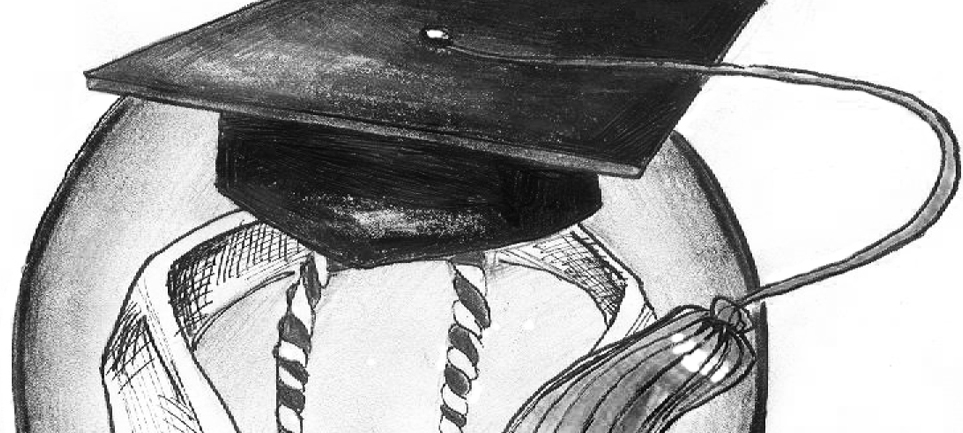Today it seems like almost all colleges are stereotyped with certain cultures. The most prevalent one attributed to higher education is hookup culture, which references a relationship preference for one-night stands and purely sexual contact. The term “hookup culture” is thrown around and applied to many campuses in American. Some people say that colleges push students into and encourage this culture, while others disagree.
On the other hand, another prevalent college culture at many religious institutions is marriage culture, dubbed “ring by spring” in reference to many students who meet in the fall semester and are married by the spring semester.
Although Virginia Wesleyan is a religious school, there doesn’t seem to be a push toward either type of culture. There are no upcoming events that address hookup culture or marriage among younger demographics.
“Hookup culture definitely exists on campus and I don’t think the school necessarily pushes it, but I think the school tries to address it by promoting safe sex and offering free condoms on campus,” junior Jake Pikarski said.
“I think that it happens all the time and it’s not really a big deal if you’re being safe,” agreed freshman Erin Highsmith.
Junior Austin Obenour disagreed about the school’s attempts to promote safe sex. “I think it’s kind of a lazy effort because you don’t hear much about the health center offering free condoms and I’ve never known anyone who has actually used them,” Obenour said.
Hookup culture has existed since the early 1920s, according to Lisa Wade in her new novel American Hookup: The New Culture of Sex on Campus. “Hookup culture is simply the newest stage in the evolution of sexual norms and behavior in America,” Wade said in reference to what she calls “youth culture.”
“We’re drawn to hookups because we’re not really into taking our time with things. That includes relationships,” Highsmith said. “Why get married when you could just have sex? No strings attached.”
Paula England, a sociologist from Stanford University, has conducted ongoing research on hookups since 2005. She has surveyed more than 17,000 students from 20 different colleges and universities. Over their four-year term, 72 percent of both men and women reported having at least one hookup, with an average of 9.7 for men and 7.1 for women.
According to NPR, a potential factor in the rise of hookup culture are co-ed dorms. NPR reports that 90 percent of student dorms on college campuses are co-ed instead of single-sex. At Wesleyan, the only dorms not co-ed are those with public bathrooms, such as in Bray Village and Allen Village (formerly Village I and II, respectively).
Zack Clark, another junior, said he didn’t think there was any evidence of hookup culture on campus. “I don’t think hookup culture exists on campus because the girls here get so attached. It’s happened to me too many times,” Clark said.
“I don’t think hookup culture is as big here as [it is] at other schools because of our size,” agreed senior Nick Ficarella. “Pretty much everybody knows everybody and word gets around quick.”
On average only about a quarter of college students thrive in a hook up culture, while at least a third of students avoid it altogether. This number has also remained fairly consistent in the last 30 to 40 years, which may be surprising considering the arrival of dating apps such as Tinder and Bumble. With the advanced technology available and rising popularity of dating apps, it is much easier now to engage in hookup culture than it was even 10 years ago. Yet the number of students participating in hookup culture has remained fairly constant, and may even be dropping.
Interestingly, none of the students interviewed for this article had heard the term “ring by spring” and all agreed that the school wasn’t pushing them toward marriage or long-standing relationships. However, there was controversy over whether Wesleyan had a hookup culture.
This may be in line with more recent evidence that complicates the supposed prevalence of campus hookup culture. A report by the National Center for Health Statistics showed increasing percentages of men and women aged 18 to 24 who say they are still virgins or choose to abstain from sex.
An emphasis on abstinence until marriage is one of the founding tenets of the ring by spring culture on certain campuses. The term “ring by spring” refers to the trend around many religious schools that they need to be engaged, or have a ring, by the spring semester of their senior years. This leads to a lot of social pressure and anxiety for students. Many of these religious schools acknowledge this trend and arguably even advance it. For example, Houghton College is a Christian college in New York that offers a retreat for 12 new couples on campus to spend time together and attend session on the Biblical fundamentals of marriage. The most well-known religious college in the U.S., Liberty University, tells prospective students that they will find their “life mate” on campus and offers couples’ workshops.
Jordan Esposito
jmesposito@vwu.edu



